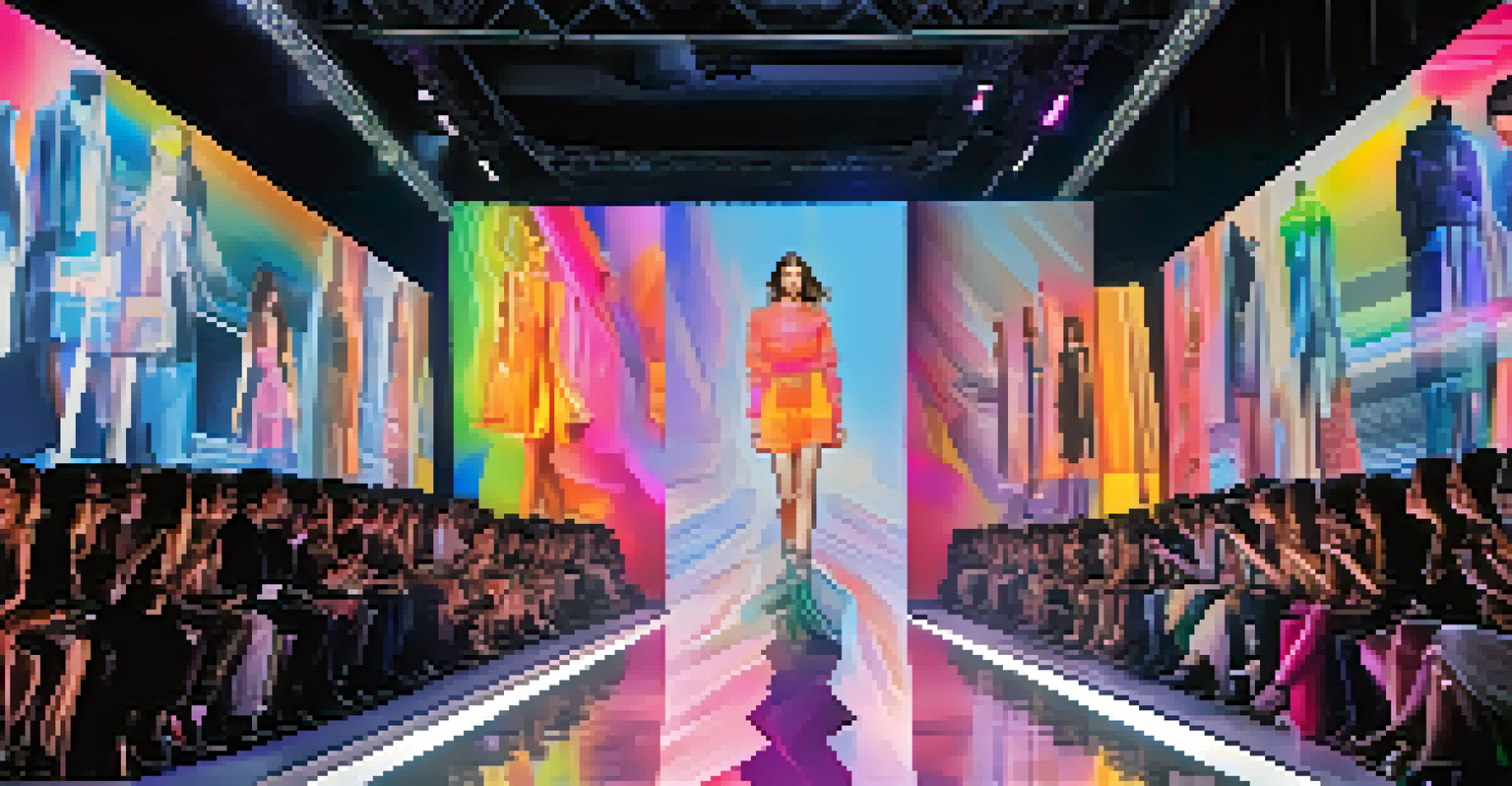Globalization's Role in Shaping Modern Fashion Trends Today

Understanding Globalization and Its Impact on Fashion
Globalization refers to the interconnectedness of countries through trade, culture, and technology. In the fashion world, this means styles, fabrics, and trends are no longer confined to specific regions. This blending of influences creates a rich tapestry that shapes what we wear today.
Fashion is the armor to survive the reality of everyday life.
For instance, the rise of fast fashion brands like Zara and H&M showcases how clothing from various cultures is quickly adapted and mass-produced. This phenomenon allows fashion to evolve rapidly, reflecting global tastes and preferences. As a result, consumers can easily access diverse styles that were once exclusive to particular geographic locations.
However, while globalization has made fashion more accessible, it also raises questions about cultural appropriation and sustainability. Understanding these dynamics is crucial as we navigate the ever-changing landscape of modern fashion.
Cultural Exchange: The Heart of Fashion Trends
At its core, fashion is about expression, and globalization fosters a vibrant cultural exchange. Designers draw inspiration from various cultures, leading to eclectic styles that blend traditional elements with contemporary flair. This fusion can be seen in everything from fabrics to silhouettes.

Take the popularity of streetwear, for example; it merges influences from hip-hop culture, skateboarding, and high fashion. This trend is a testament to how diverse backgrounds shape what we wear, making fashion a truly global conversation. It reflects a collective identity that transcends borders.
Globalization Transforms Fashion Access
Globalization has made diverse fashion styles more accessible, allowing consumers to embrace trends from around the world.
However, this exchange must be approached with respect and understanding. Recognizing the origins of styles and honoring those cultures is essential to preserve the authenticity of fashion while celebrating its diversity.
Fast Fashion: A Double-Edged Sword of Globalization
Fast fashion is a byproduct of globalization that has transformed the industry. Brands can now produce trendy clothing at breakneck speed, allowing consumers to buy the latest looks without breaking the bank. This has made fashion more democratic and accessible to a wider audience.
Style is a way to say who you are without having to speak.
However, this convenience comes with significant consequences. The rapid production process often leads to environmental degradation and labor exploitation in developing countries. As consumers, we must weigh the appeal of low-cost fashion against its ethical implications.
The rise of sustainable fashion movements illustrates a growing awareness of these issues. Many brands are now prioritizing ethical practices, encouraging shoppers to make more informed choices about their purchases and the impact on the planet.
Technology's Role in Global Fashion Trends
Technology is another driving force behind globalization in fashion. Social media platforms like Instagram and TikTok play a pivotal role in spreading trends across the globe in real-time. A fashion statement made in one part of the world can become a viral sensation within hours, influencing styles everywhere.
Moreover, online shopping has revolutionized how we access fashion. With just a few clicks, consumers can explore international brands and styles, creating a global marketplace at their fingertips. This accessibility has encouraged a more diverse wardrobe and a broader understanding of fashion from different cultures.
Sustainability Challenges Fast Fashion
The rapid rise of fast fashion raises ethical concerns, prompting a shift towards sustainable practices in the industry.
However, this reliance on technology also poses challenges, including the pressure to constantly update our wardrobes and the impact of influencer culture. Balancing these aspects is essential as we navigate the digital landscape of modern fashion.
The Influence of Global Events on Fashion Trends
Global events, such as international fashion weeks, political movements, and social changes, significantly shape fashion trends. These events provide a platform for designers to showcase their work and reflect the mood of society through their collections. For example, the rise of inclusivity in fashion has sparked conversations around body positivity and representation.
Fashion designers often use their collections to comment on social issues, making their work relevant and impactful. This trend encourages consumers to consider the stories behind the clothes they wear, fostering a deeper connection to fashion.
As we witness ongoing global changes, it's clear that fashion will continue to evolve in response to these events. Keeping an eye on these shifts can provide valuable insights into the future of fashion.
Sustainability and Ethical Fashion in a Globalized World
As consumers become more aware of the environmental and social costs of fashion, sustainability has emerged as a crucial trend. Globalization allows for the sharing of innovative sustainable practices across borders, enabling brands to adopt eco-friendly approaches. This shift is reshaping the way we view fashion and its impact on the planet.
Many companies are now prioritizing sustainable materials, ethical labor practices, and transparency in their supply chains. This not only satisfies consumer demand for responsible fashion but also sets a new standard for the industry as a whole. It's a powerful reminder that our choices can drive change.
Technology Drives Global Fashion Trends
Social media and online shopping have revolutionized how trends spread and how consumers engage with fashion globally.
However, achieving true sustainability in fashion remains a complex challenge. As both consumers and brands navigate this landscape, it's essential to support initiatives that prioritize ethical practices and foster a more sustainable future.
The Future of Fashion in a Globalized Context
Looking ahead, the future of fashion will undoubtedly continue to be shaped by globalization. As cultures collide and new technologies emerge, we can expect to see even more innovative designs and trends that reflect our interconnected world. The fashion industry is poised for transformation as it adapts to changing consumer values and global dynamics.
Emerging trends such as virtual fashion and digital clothing are already making waves, offering exciting possibilities for self-expression in the digital realm. These innovations present new opportunities for creativity while challenging traditional notions of what fashion can be.

Ultimately, the future of fashion will rely on a delicate balance between embracing global influences and honoring individual cultural identities. By fostering collaboration and understanding, we can create a fashion landscape that celebrates diversity and innovation.